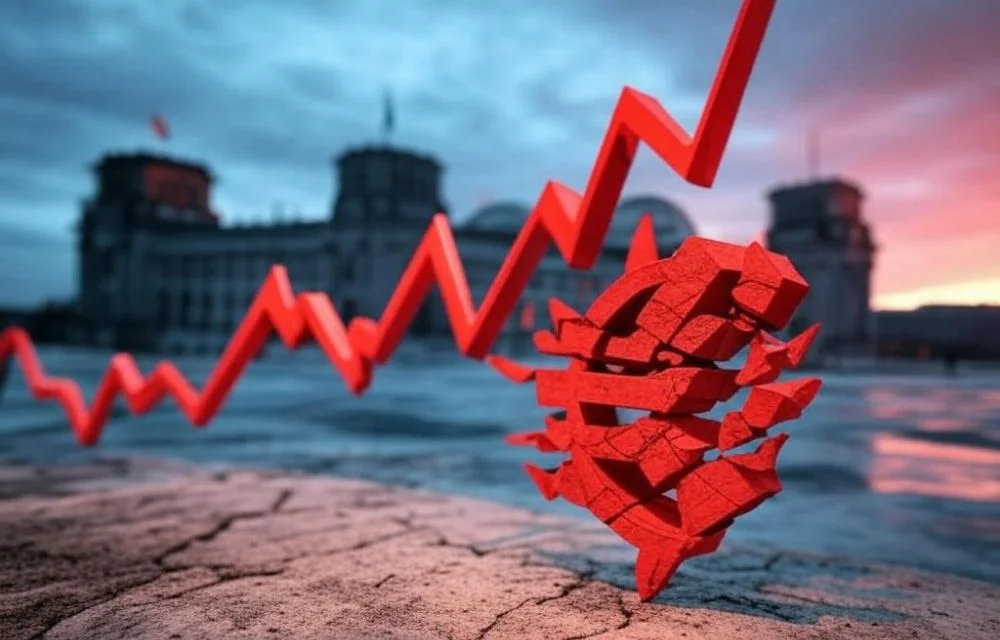Shocking Bunds: Devastating on Eurozone
The financial markets have been shaken this week as German Bunds experienced a complete collapse. As Germany, the largest economy in the Eurozone, gears up for an aggressive fiscal expansion, the implications for both the Eurozone and global markets are profound.
What Happened to German Bunds?
German Bunds, known for their stability and considered a benchmark for safety in European government bonds, saw their prices plummet. When bond prices drop, yields rise, signaling that investors now demand higher returns to hold these bonds. This shift reflects growing concerns about Germany’s fiscal strategy and its potential impact on inflation and debt sustainability.
“Spend Baby Spend”: What Does It Mean?
The phrase “Spend Baby Spend” encapsulates Germany’s departure from its historically conservative fiscal stance. Traditionally, Germany has maintained tight control over its government spending, focusing on balanced budgets and minimal debt. However, recent moves indicate a significant shift towards increased spending, potentially to stimulate the economy or address infrastructure and social needs.
Why Is This Significant?
- Rising Yields and Borrowing Costs: Higher yields on German Bunds often lead to increased borrowing costs not only for Germany but also for other Eurozone nations. Investors view German Bunds as a risk benchmark, and changes in their performance ripple through European debt markets.
- Impact on the Euro: As yields rise and concerns about debt increase, the euro may face downward pressure against major currencies like the US dollar. Investors seeking safer assets may move their investments to stronger economies or currencies, further weakening the euro.
- ECB’s Next Move: The European Central Bank (ECB) may be forced to intervene. If rising yields translate into tighter financial conditions, the ECB might adjust its monetary policy, potentially affecting interest rates and liquidity in the market.
Global Market Implications
The collapse of German Bunds is not just a regional issue. Global markets often react to significant shifts in European bond markets. US treasuries, for example, might see increased demand as investors look for safer alternatives. Additionally, emerging markets could experience volatility if investors pull capital out of riskier assets.
What Should Traders and Investors Do?
- Stay Informed: Monitor updates from the ECB and German policymakers for clues about future fiscal and monetary policies.
- Diversify Holdings: Consider rebalancing portfolios to manage risk, particularly in fixed-income investments.
- Watch the Euro: Currency traders should be vigilant, as volatility in the euro can create opportunities as well as risks.
Conclusion
The collapse of German Bunds marks a pivotal moment for financial markets. As Germany shifts its fiscal strategy, the ripple effects will likely be felt across the Eurozone and beyond. Traders and investors should remain cautious and adapt strategies to navigate the evolving landscape effectively.

